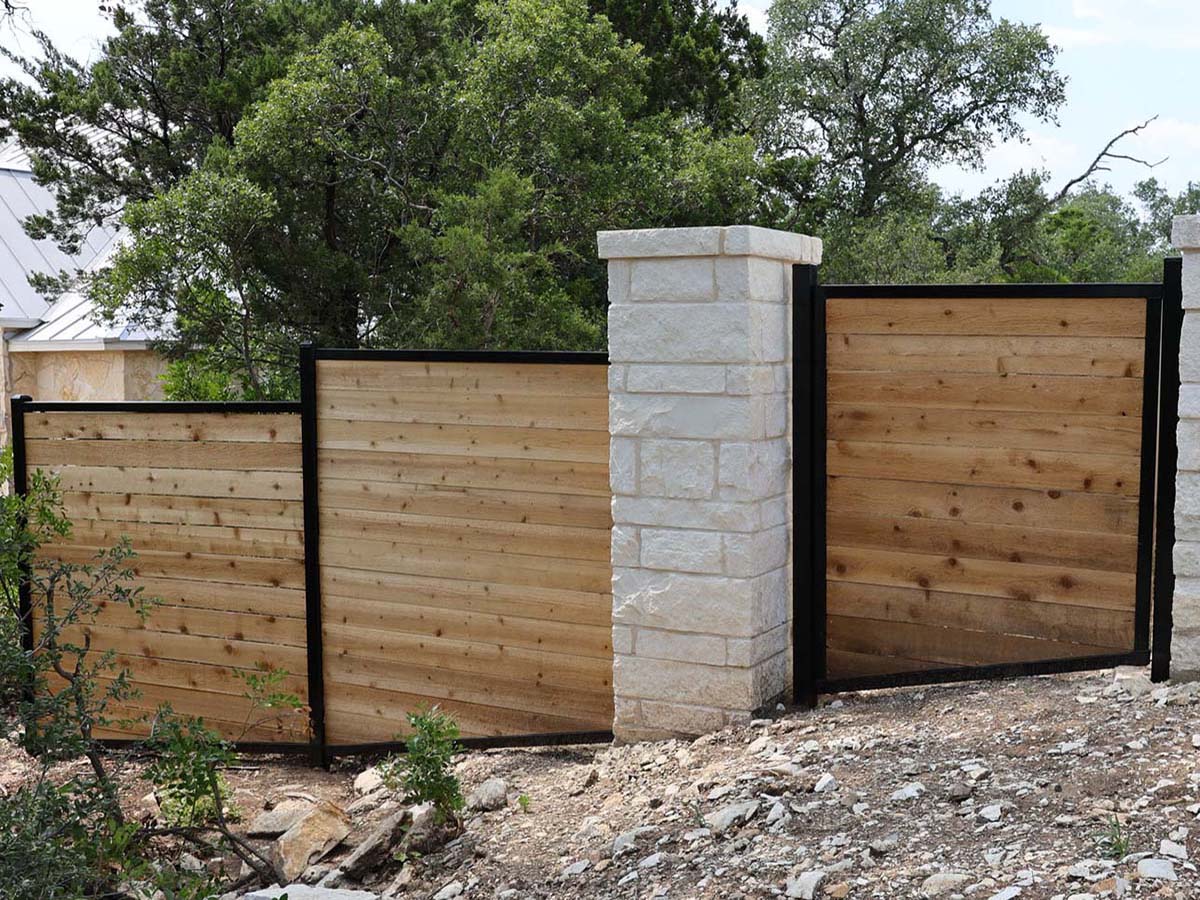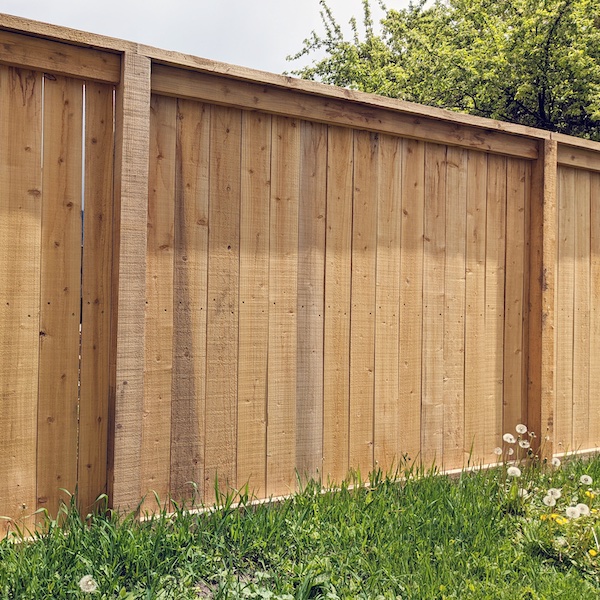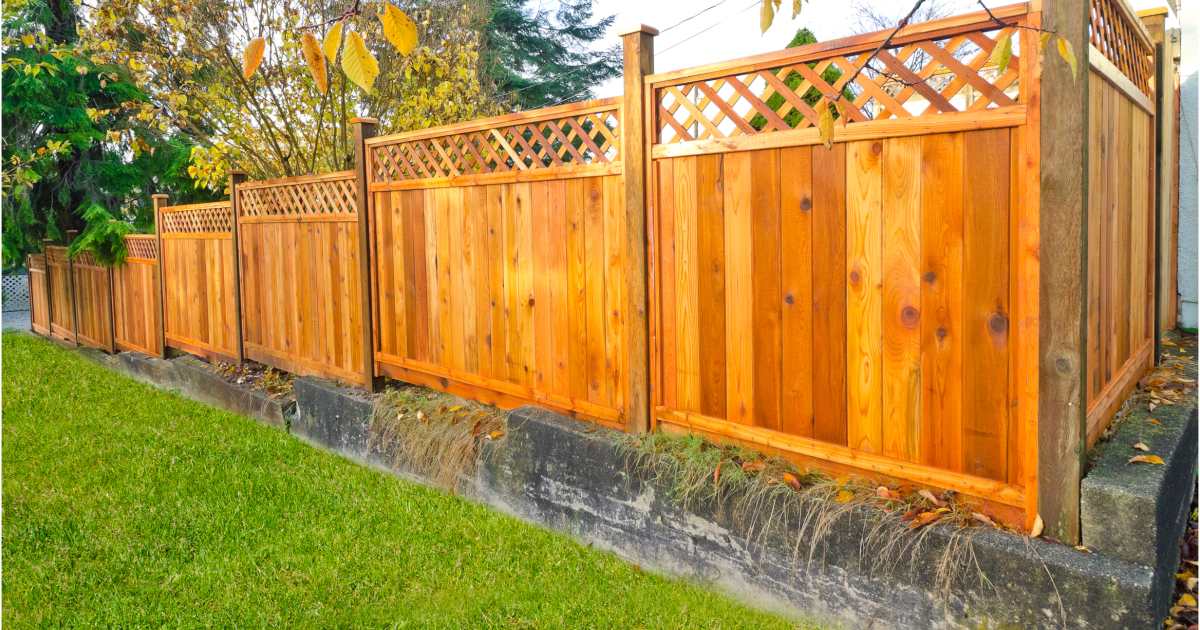Featured
Picking the best secure fencing product for your residential property is a substantial decision, and each alternative includes its very own collection of challenges and advantages. Timber, plastic, and aluminum are amongst one of the most preferred materials for both household and industrial fencing. Here's a breakdown of the advantages and disadvantages of each to help you make a decision which is ideal for your needs.
Wood Fencing. Pros:
Aesthetic Allure: Timber supplies a classic, all-natural look that complements virtually any kind of design of residential or commercial property. It can be repainted or tarnished in a variety of shades, permitting total personalization. Whether you're going for a rustic, country-style look or a much more sleek and polished look, timber is functional.
Cost-efficient: Generally, wood fencings are among the most affordable choices when it concerns upfront prices. It's a great alternative for those on a spending plan that desire a high quality fencing without a high price.
![]()
Customization: Wood can be conveniently adapted to fit any form or dimension. You can choose from various designs such as personal privacy, picket, or ranch-style fencings. It's also simple to change, repair, or change components if needed.
Cons:
Upkeep: Timber fences call for regular maintenance. They need to be stained or painted occasionally to stop warping, parasite, or rot infestation. Without upkeep, wood can weaken much faster, specifically in moist or wet environments.
Vulnerability to Damage: Wood is vulnerable to harm from parasites, such as termites, and weather condition conditions, like high winds, rainfall, or snow. Over time, exposure to these elements can trigger the timber to fracture, splinter, or warp.
Shorter Life-span: While wood fences can last for numerous years, they generally have a shorter lifespan compared to plastic or aluminum, particularly otherwise kept regularly.
Plastic Fence. Pros:
Low Upkeep: One of the most appealing attributes of vinyl fencings is that they need little to no upkeep. Unlike wood, vinyl doesn't require to be repainted or stained. It's resistant to fading, fracturing, and warping, making it optimal for those that want a convenient fencing.
Durability: Plastic fences are exceptionally long lasting and can hold up against harsh weather, including severe heat, hefty rain, or snow. They're likewise immune to pests like termites, which can destroy wood fences.
Long Life-span: Plastic fencings can last for 20-30 years or more with very little maintenance. Numerous makers provide service warranties, supplying satisfaction and more improving the value of your investment.
![]()
Range of Styles: Available in a range of colors, appearances, and styles, vinyl fencings can mimic the look of wood yet without the upkeep. They are available in styles like privacy, picket, and ornamental, making them highly adjustable.
Disadvantages:
Greater Initial Cost: The upfront expense of plastic secure fencing is commonly more than timber, making it less affordable for some. Its longevity and low upkeep make it a worthwhile investment in the long run.
Weak in Winter: In chillier environments, plastic can become breakable gradually, which makes it more susceptible to splitting if subjected to impact. This can be a concern in locations with severe wintertimes.
Restricted Personalization: While vinyl is available in a selection of styles and colors, it's not as adjustable as timber. Plastic might not be the ideal selection. if you have a really details vision in mind.
Light Weight Aluminum Secure Fencing. Pros:
Low Upkeep: Aluminum is one more product that calls for very little upkeep. Unlike timber, it does not rust, wear away, or fade. This makes it optimal for settings with extreme weather or seaside locations where saltwater could trigger rust.
Resilience: Aluminum fences are understood for their stamina and lengthy life-span. They can stand up to harsh climate, and unlike timber or vinyl, they are immune to pests and won't weaken in time.
![]()
Aesthetic Allure: Light weight aluminum fencings give a streamlined, classy appearance and are frequently used for ornamental functions. They are available in different styles and surfaces and can enhance the overall aesthetic allure of your home.
Security: Aluminum is a tough material, making it a superb choice for offering safety around your home. It's frequently utilized for residential protection fencing as well as for swimming pool enclosures.
Disadvantages:
Cost: Light weight aluminum fencings are usually more expensive than wood and in some cases even vinyl, specifically when choosing for ornamental or custom-made styles. The preliminary expense might be a deterrent for some residential or commercial property owners.
Less Personal Privacy: One of the drawbacks of aluminum is that it usually offers less privacy compared to wood or plastic. The gaps between the slats or bars can be broad, which allows people to translucent the fencing. This may not be the finest option. if personal privacy is important to you.
Denting: While aluminum is durable, it is vulnerable to denting from hefty effects, such as cars and truck accidents or vandalism. While it won't rust, a dent can jeopardize its appearance and integrity.
Which Product Should You Select? The decision in between plastic, light weight aluminum, and wood fencing comes down to your spending plan, the quantity of upkeep you're willing to take care of, and the particular needs of your property. If you like an all-natural, adjustable appearance and want to maintain it, timber could be the method to go. Vinyl provides superb benefits if you focus on resilience, durability, and low-maintenance treatment. For those that want an elegant, high-end look with very little upkeep, light weight aluminum is a great option.
Consider your building's environment, the level of personal privacy or security you call for, and the long-lasting investment you want to make. Whichever material you choose, each deals unique advantages that can improve your home or business while providing functionality and design.
Wood Fencing. Pros:
Aesthetic Allure: Timber supplies a classic, all-natural look that complements virtually any kind of design of residential or commercial property. It can be repainted or tarnished in a variety of shades, permitting total personalization. Whether you're going for a rustic, country-style look or a much more sleek and polished look, timber is functional.
Cost-efficient: Generally, wood fencings are among the most affordable choices when it concerns upfront prices. It's a great alternative for those on a spending plan that desire a high quality fencing without a high price.

Customization: Wood can be conveniently adapted to fit any form or dimension. You can choose from various designs such as personal privacy, picket, or ranch-style fencings. It's also simple to change, repair, or change components if needed.
Cons:
Upkeep: Timber fences call for regular maintenance. They need to be stained or painted occasionally to stop warping, parasite, or rot infestation. Without upkeep, wood can weaken much faster, specifically in moist or wet environments.
Vulnerability to Damage: Wood is vulnerable to harm from parasites, such as termites, and weather condition conditions, like high winds, rainfall, or snow. Over time, exposure to these elements can trigger the timber to fracture, splinter, or warp.
Shorter Life-span: While wood fences can last for numerous years, they generally have a shorter lifespan compared to plastic or aluminum, particularly otherwise kept regularly.
Plastic Fence. Pros:
Low Upkeep: One of the most appealing attributes of vinyl fencings is that they need little to no upkeep. Unlike wood, vinyl doesn't require to be repainted or stained. It's resistant to fading, fracturing, and warping, making it optimal for those that want a convenient fencing.
Durability: Plastic fences are exceptionally long lasting and can hold up against harsh weather, including severe heat, hefty rain, or snow. They're likewise immune to pests like termites, which can destroy wood fences.
Long Life-span: Plastic fencings can last for 20-30 years or more with very little maintenance. Numerous makers provide service warranties, supplying satisfaction and more improving the value of your investment.

Range of Styles: Available in a range of colors, appearances, and styles, vinyl fencings can mimic the look of wood yet without the upkeep. They are available in styles like privacy, picket, and ornamental, making them highly adjustable.
Disadvantages:
Greater Initial Cost: The upfront expense of plastic secure fencing is commonly more than timber, making it less affordable for some. Its longevity and low upkeep make it a worthwhile investment in the long run.
Weak in Winter: In chillier environments, plastic can become breakable gradually, which makes it more susceptible to splitting if subjected to impact. This can be a concern in locations with severe wintertimes.
Restricted Personalization: While vinyl is available in a selection of styles and colors, it's not as adjustable as timber. Plastic might not be the ideal selection. if you have a really details vision in mind.
Light Weight Aluminum Secure Fencing. Pros:
Low Upkeep: Aluminum is one more product that calls for very little upkeep. Unlike timber, it does not rust, wear away, or fade. This makes it optimal for settings with extreme weather or seaside locations where saltwater could trigger rust.
Resilience: Aluminum fences are understood for their stamina and lengthy life-span. They can stand up to harsh climate, and unlike timber or vinyl, they are immune to pests and won't weaken in time.

Aesthetic Allure: Light weight aluminum fencings give a streamlined, classy appearance and are frequently used for ornamental functions. They are available in different styles and surfaces and can enhance the overall aesthetic allure of your home.
Security: Aluminum is a tough material, making it a superb choice for offering safety around your home. It's frequently utilized for residential protection fencing as well as for swimming pool enclosures.
Disadvantages:
Cost: Light weight aluminum fencings are usually more expensive than wood and in some cases even vinyl, specifically when choosing for ornamental or custom-made styles. The preliminary expense might be a deterrent for some residential or commercial property owners.
Less Personal Privacy: One of the drawbacks of aluminum is that it usually offers less privacy compared to wood or plastic. The gaps between the slats or bars can be broad, which allows people to translucent the fencing. This may not be the finest option. if personal privacy is important to you.
Denting: While aluminum is durable, it is vulnerable to denting from hefty effects, such as cars and truck accidents or vandalism. While it won't rust, a dent can jeopardize its appearance and integrity.
Which Product Should You Select? The decision in between plastic, light weight aluminum, and wood fencing comes down to your spending plan, the quantity of upkeep you're willing to take care of, and the particular needs of your property. If you like an all-natural, adjustable appearance and want to maintain it, timber could be the method to go. Vinyl provides superb benefits if you focus on resilience, durability, and low-maintenance treatment. For those that want an elegant, high-end look with very little upkeep, light weight aluminum is a great option.
Consider your building's environment, the level of personal privacy or security you call for, and the long-lasting investment you want to make. Whichever material you choose, each deals unique advantages that can improve your home or business while providing functionality and design.
Latest Posts
Turn Your Fencing Vision into Reality with Washington Fence
Published Feb 24, 25
1 min read
Obtain Your Car Running Smoothly-- Montclare Auto Repair Work!
Published Feb 23, 25
1 min read
Enhance Your Residential or Commercial Space with Expert Fencing
Published Feb 22, 25
1 min read
More
Latest Posts
Turn Your Fencing Vision into Reality with Washington Fence
Published Feb 24, 25
1 min read
Obtain Your Car Running Smoothly-- Montclare Auto Repair Work!
Published Feb 23, 25
1 min read
Enhance Your Residential or Commercial Space with Expert Fencing
Published Feb 22, 25
1 min read